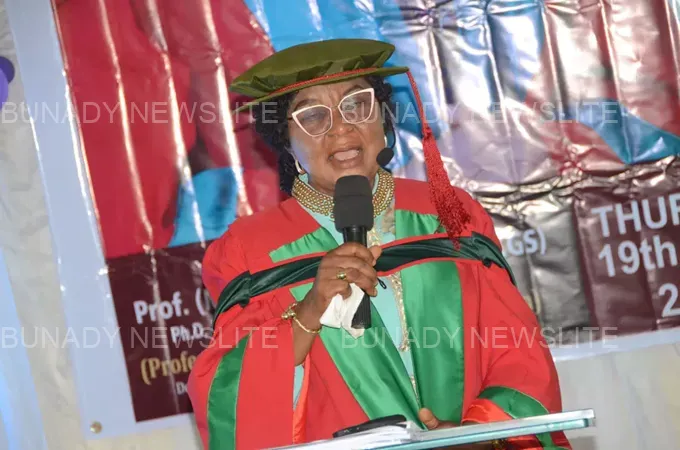A Professor of Vocational Teacher Education, VTE, Ngozi Alio, has identified poor staffing, low level of funds and inadequate training facilities in tertiary institutions as reasons behind unemployable graduates in Nigeria.
She equally stated that poor and static remuneration of technical staff in education sector were part of reasons behind dearth of quality teaching staff in tertiary institutions.
She made the disclosure while presenting the 48th Inaugural Lecture of the Enugu State University of Science and Technology, ESUT at the capacity-filled Barr. Peter Ndubuisi Mbah Multipurpose Hall in Agbani, Enugu State, weekend.
While discussing the topic titled “Technology and Vocational Education as a Pathway for Self-reliance in the Informal Sector of the Economy: The Role of 21st Century Teachers,” she noted that “inadequate training is one of the reasons why products of Nigerian institutions, without further training in a cooperative industry or in the work environment are unusable.”
“In Nigeria, training institutions (primary, secondary and tertiary) as the characteristics of depressed economies are hardly able to review their facilities to keep pace with technological progress. The trainees/students from those schools/institutions enter the world of work only to discover that the equipment with which they were trained have been modified or at times, have drastically deviated from those on which training occured. In Nigeria, obsolete equipment are the best one that can be found in most schools/institutions,” she noted.
Prof Alio stressed the need for regular re- training of teachers to catch up with new technologies like, Artificial Intelligence, (AI), Internet of Things – IoT, and Industry 4.0 revolution etc, emphasizing that
achieving Self-reliance in Technology and Vocational Education in Nigeria would require facility improvement for adequate and effective education.
While advocating the need for improved teacher training and development for teachers of technology education programmes, she called for enhancement of industry partnership and collaboration and for strict supervision during training and schooling.
“There is need to always review the curriculum so that learning will reflect or be of relevance to the prevailing situation at every instance.
“Effective Technical and Vocational Education and Training should be pursued for successful achievement of Self-reliance,” she further recommended.
In his remarks, the Vice Chancellor of ESUT, Professor Aloysius-Michaels Okolie, charged the ESUT professors to develop capacity for mentorship which would create long-term values in the system.
The Vice Chancellor who was represented by his Deputy, Professor Chike Nwoha, equally enjoined future inaugural lecturers of the University not to deviate from the academic culture of the University by soliciting for financial support in WhatsApp groups, insisting that inaugural lectures remain a university project for enhancing the academic content and rating of the University.
While congratulating the lecturer, the chairman of ESUT Inaugural Lectures Committee, Prof. Mellitus Ezeamaenyi, stated that frequent academic discourses such as inaugural lectures have greatly improved the visibility and webo metric rankings of the University.
Highlight of the lecture was the presentation of N1 million and N500, 000 cheques to the inaugural lecturer which were sponsored by the Chairman of the Governing Council of the University, Sir Chinyeaka Ohaa, and another member of the Council, Dr. Innocent Akuvue, respectively.
The lecture was widely attended by members of the academia from ESUT and other institutions, some government functionaries, traditional rulers, one Archbishop and two Bishops under who the lecturer had served or still serving in their Diocesan Education Board.

